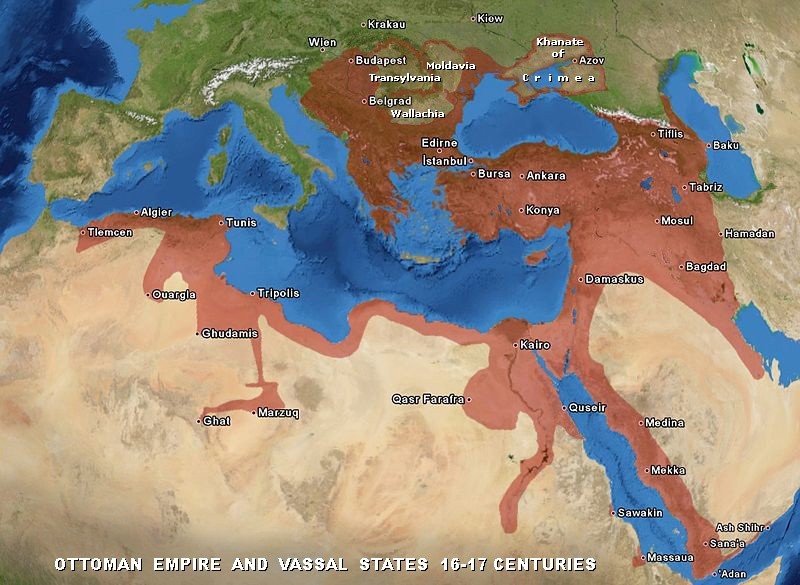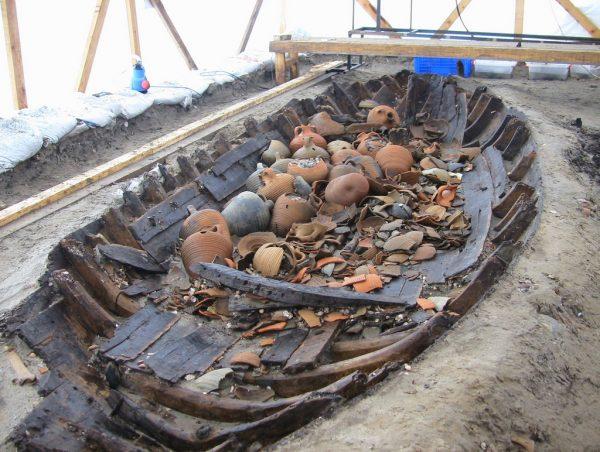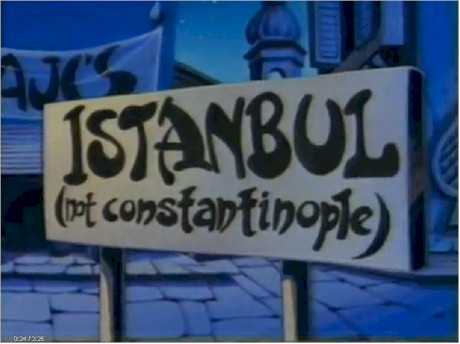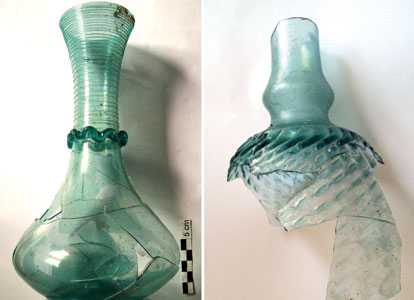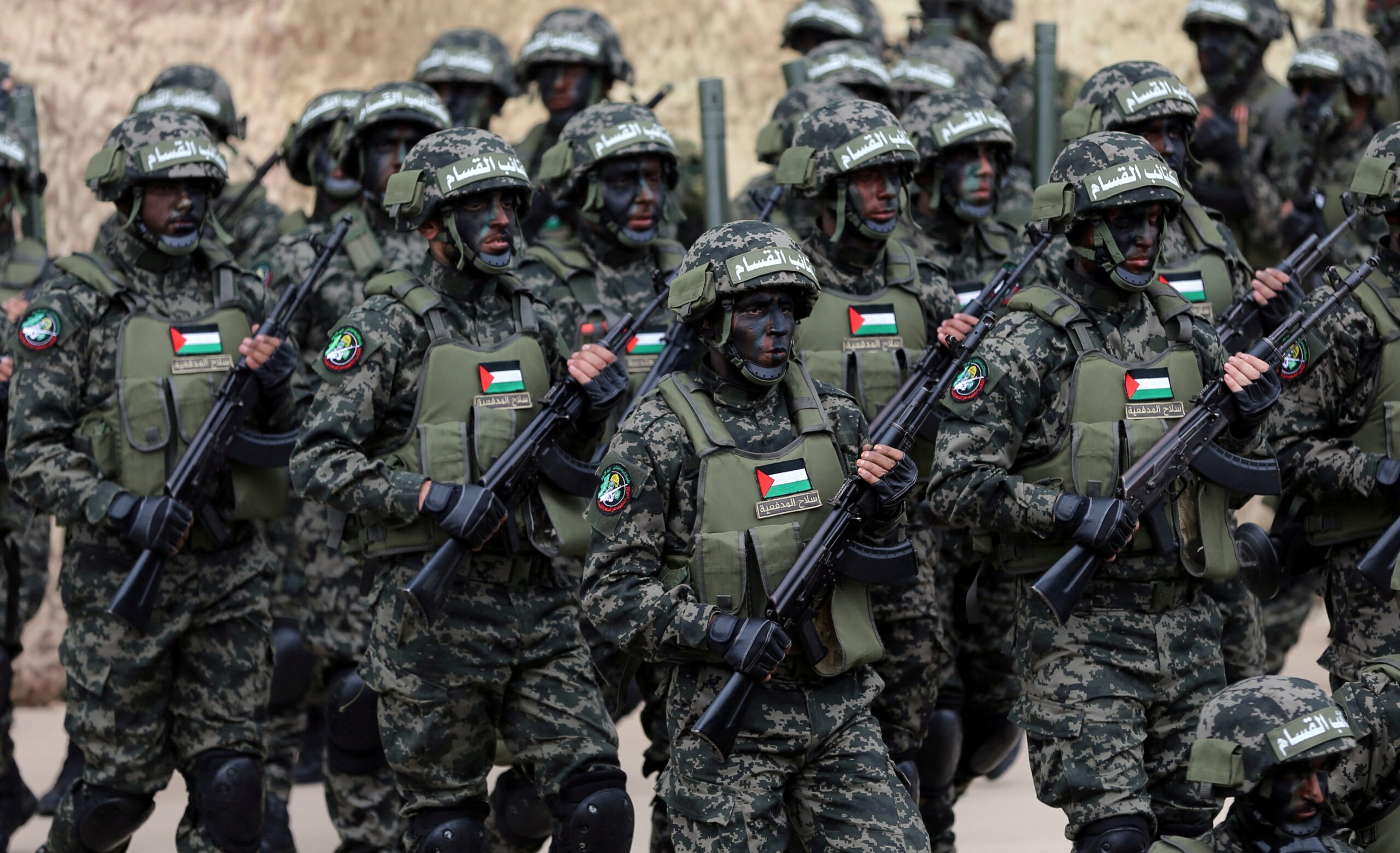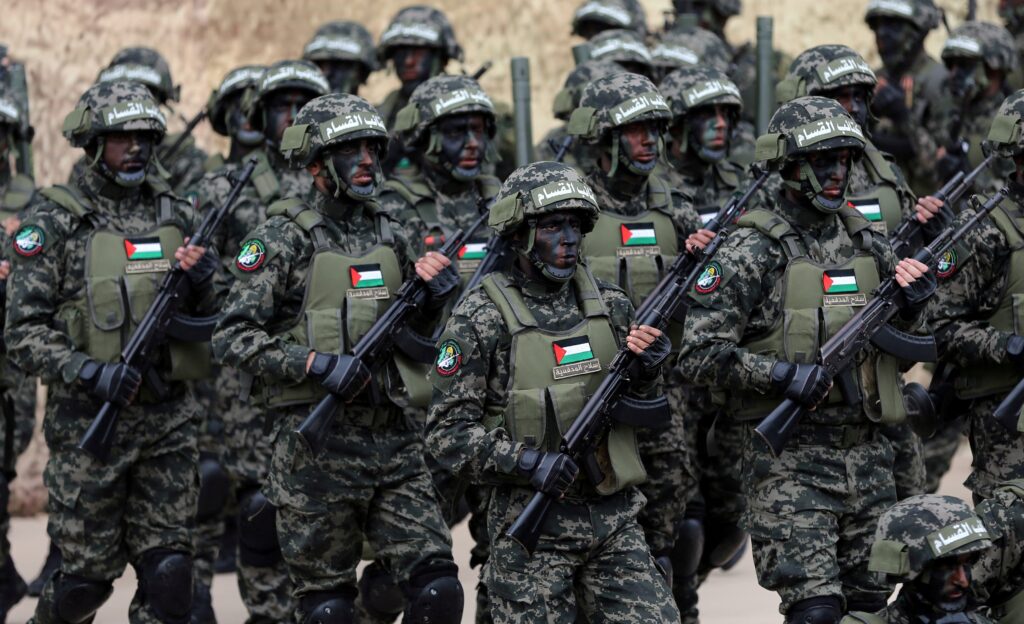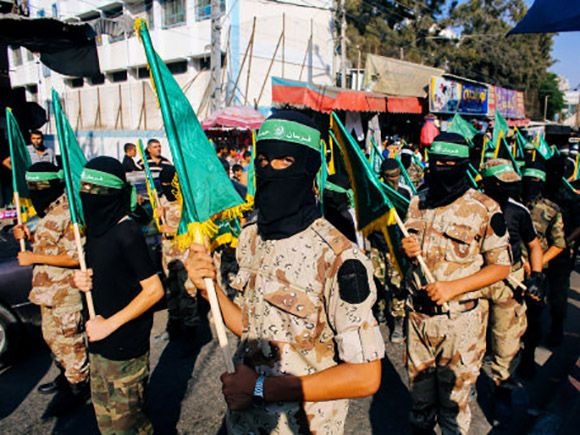Tree has great importance in Turkish culture. With the belief of Shamanism, tree is entered daily life and accepted as a tool of communication. All the meanings that the tree of life encompasses are reflected on traditions. Tree of life is used as a motive in architecture and handicrafts of Anatolian realm in Turkish culture before and after Islam.
A new interpretation of tree is observed in the festivities and weddings organised in the Ottoman Empire with the use of three dimensional nahıls in different sizes.
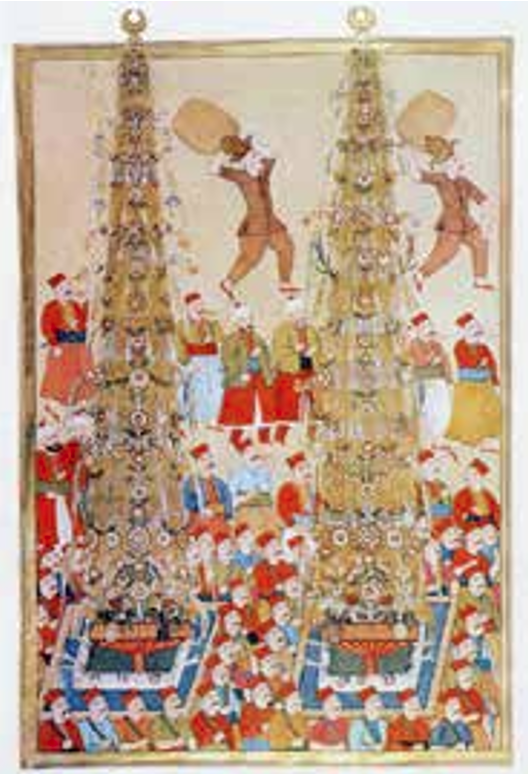
Nahıl is an object which is used in weddings and festivals resembling a palm tree with its conic shape getting thinner as it goes upwards and is decorated with ornaments in different shapes.
The meaning ascribed to nahıl coincides with the meaning ascribed to the tree. Nahıls which draw all the attention to themselves are important indicators in terms of sharing power and beauty with the society.
Historians mention the existence and technical features of nahıls in small and large scales. Nahıls on which the power of sovereignty is also reflected have begun to be forgotten with the collapse of Ottoman Empire.
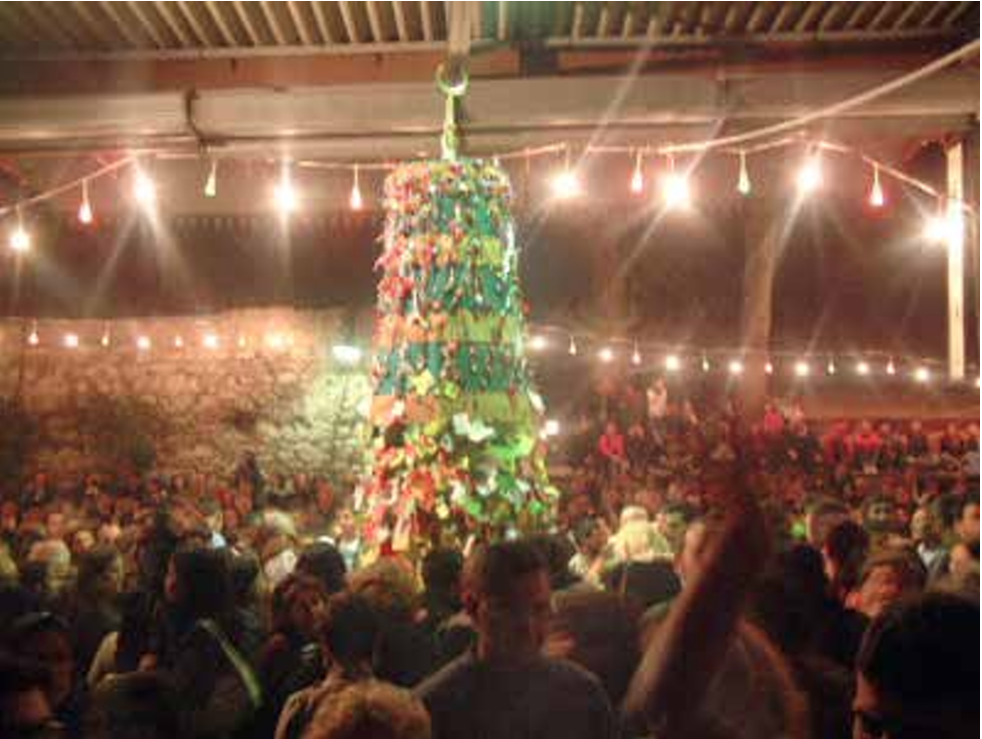
The traces of nahıl are found, though rarely, in Turkey and it is used in plain forms as a sign of wedding ceremonies. As a reflection of an almost forgotten cultural tradition, nahıl makers (Nahılbents) of today strive to keep alive this tradition.


